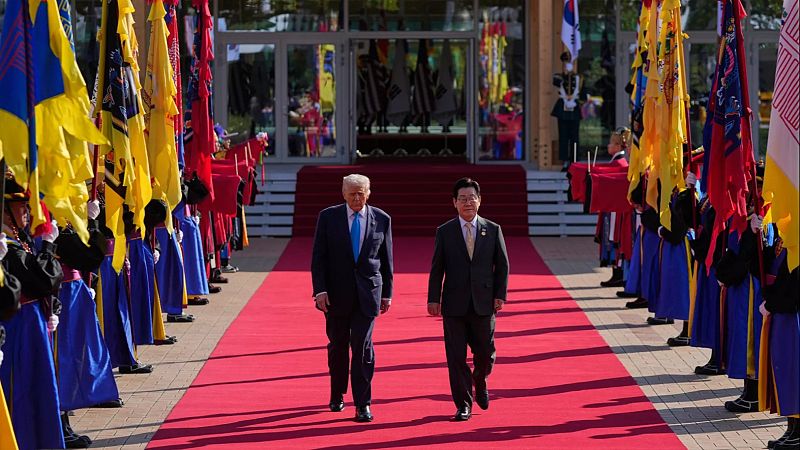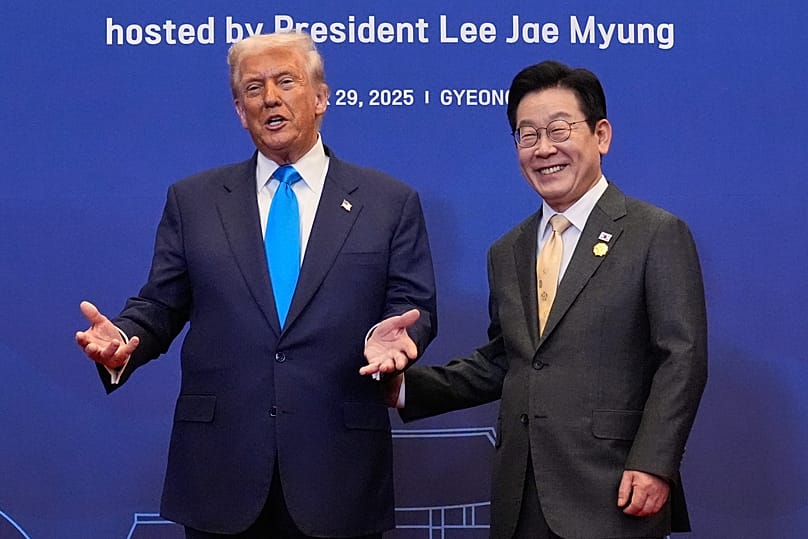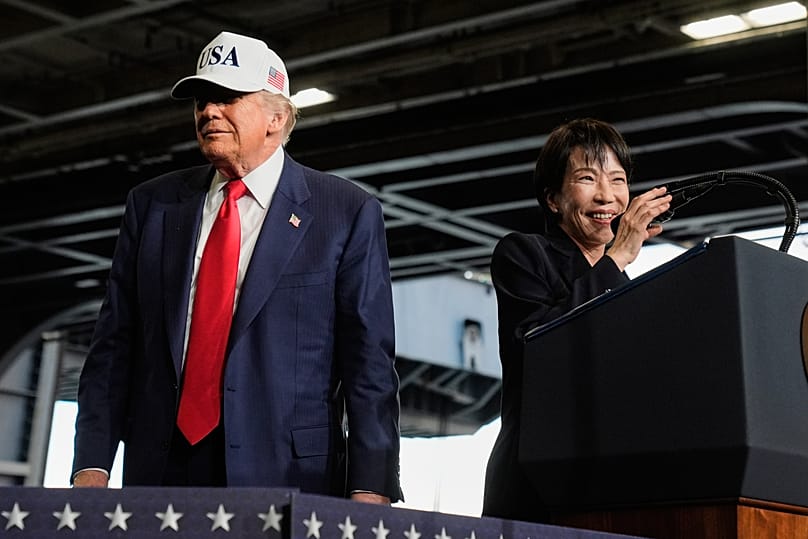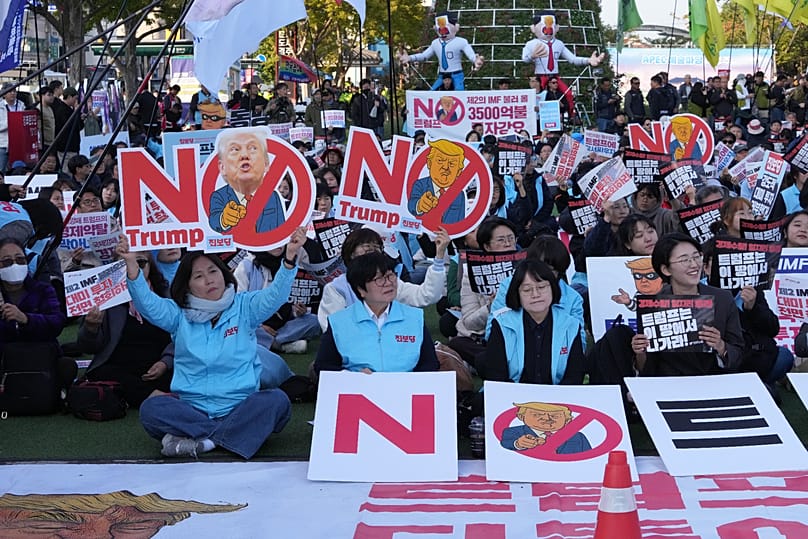Trump given golden crown in South Korea with trade deal 'pretty much finalised' but not signed

The United States and South Korea advanced trade talks on Wednesday, addressing details of $350 billion (€300 billion) that would be invested in the US economy, after negotiations and ceremonies that included the presentation of a gold medal and crown to President Donald Trump.
Both were gifts from the country's President Lee Jae Myung who dialled up the adulation while Washington and Seoul worked to nail down financial promises during the last stop of Trump’s Asia trip.
Although both sides said progress has been made, Trump said things were "pretty much finalised," but no agreement has been signed yet.
The framework includes gradual investments, cooperation on shipbuilding and the lowering of Trump’s tariffs on South Korea's automobile exports, according to Kim Yong-beom, Lee's chief of staff for policy. The White House did not immediately comment.
The announcement came after a day of adulation for the visiting American president from his hosts. There was a special lunch menu featuring US-raised beef and a gold-adorned brownie.
A band played Trump's campaign anthem of "YMCA" when he stepped off Air Force One, with Lee telling him "you are indeed making America great again."
"That was some spectacle and some beautiful scene," Trump told Lee during their meeting. "It was so perfect, so flawlessly done."
Earlier in the day, Trump even softened his rhetoric on international trade, which he normally describes in predatory terms where someone is always trying to rip off the United States.
"The best deals are deals that work for everybody," he said during a business forum.
Bumpy road to a trade deal
Trump was visiting while South Korea is hosting the annual Asia-Pacific Economic Cooperation summit in Gyeongju after previous stops in Japan and Malaysia.
The Republican president has been trying to tie up trade deals along the way, eager to show that his confrontational approach of tariffs is paying dividends for Americans who are uneasy about the job market and watching a federal government shutdown extend into its fifth week.
However, South Korea has been particularly tough to crack, with the sticking point being Trump's demand for $350 billion of direct investment in the US.
Korean officials say putting up cash could destabilise their own economy and they’d rather offer loans and loan guarantees instead. The country would also need a swap line to manage the flow of its currency into the US.
Trump, after meeting with Lee, said "we made our deal pretty much finalised" but provided no further details.
Oh Hyunjoo, a deputy national security director for South Korea, told reporters earlier in the week that the negotiations have been proceeding "a little bit more slowly" than expected.
"We haven't yet been able to reach an agreement on matters such as the structure of investments, their formats and how the profits will be distributed," she said on Monday.
It's a contrast from Trump's experience in Japan, where the government has worked to deliver the $550 billion (€472 billion) in investments it promised as part of an earlier trade agreement.
Commerce Secretary Howard Lutnick announced up to $490 billion (€420 billion) in specific commitments during a dinner with business leaders in Tokyo.
For now, South Korea is stuck with a 25% tariff on automobiles, putting automakers such as Hyundai and Kia at a disadvantage against Japanese and European competitors, which face 15%.
Lee, speaking at the business forum before Trump arrived, warned against trade barriers.
"At a time when protectionism and nationalism are on the rise and nations focus on their immediate survival, words like 'cooperation,' 'coexistence' and 'inclusive growth' may sound hollow," he said.
"Yet, paradoxically, it is in times of crisis like this that APEC's role as a platform for solidarity shines brighter."
Today




